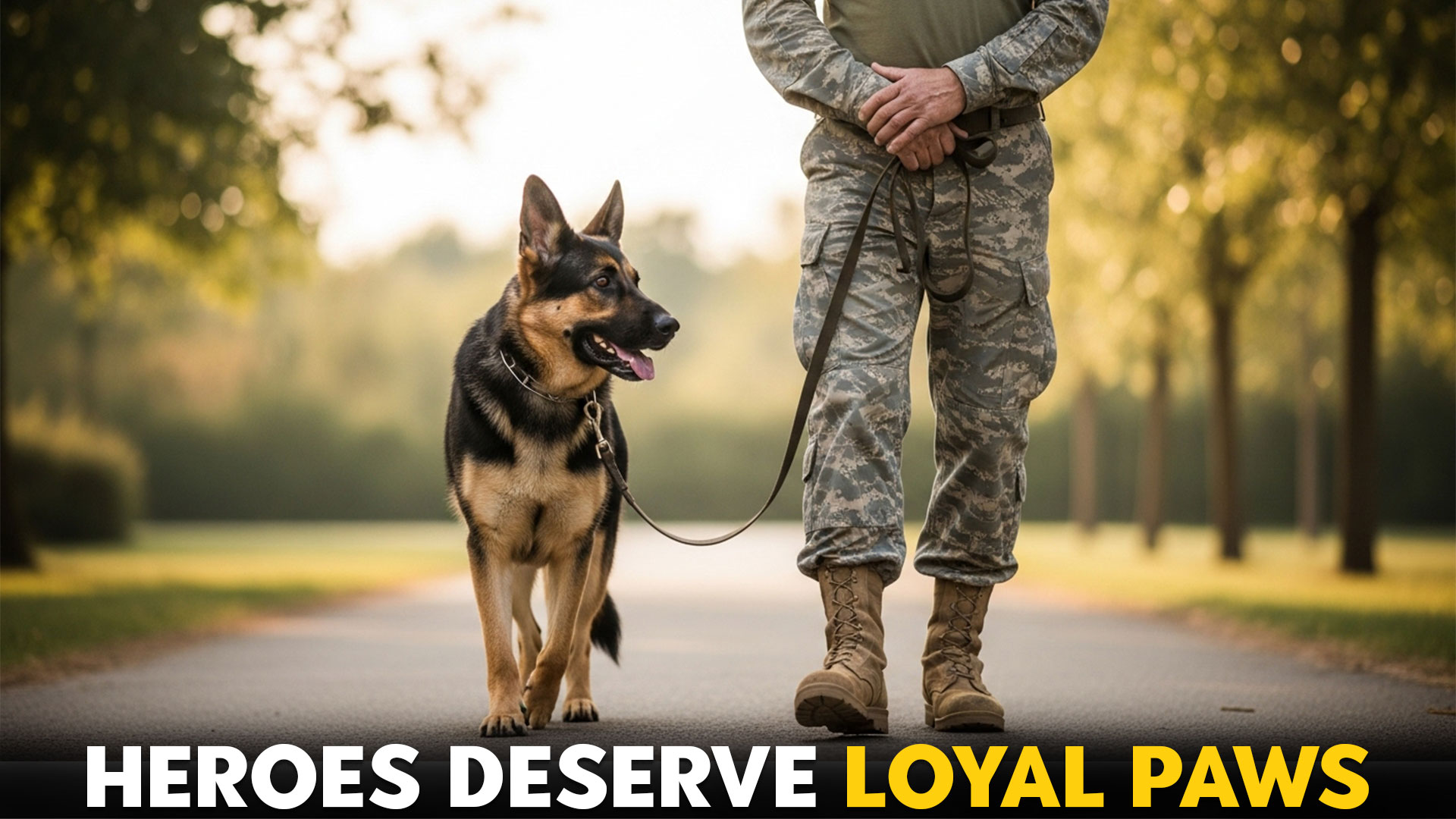The healing power of dogs isn’t just a feeling—it’s increasingly backed by science. In 2024, a landmark trial of 156 veterans found that those paired with service dogs had significantly lower PTSD symptoms, depression, and anxiety within just three months—real, measurable relief.
As a dog owner, I’ve seen how that bond can change a life. Healing isn’t linear. Veterans often describe nights filled with restlessness, days shadowed by emotional alarms, and an overwhelming sense of isolation. A trusted dog can become a beacon: present, attentive, loyal in ways words often fail.
Companionship—steady, nonjudgmental, ever watching—offers more than comfort. It builds trust, routine, and hope. The right canine companion offers both shield and solace.
In this article, we’ll guide you through seven dog breeds that embody loyalty and companionship unlike any other. These are not just pets—they are often lifelines.
If you or someone you care for is seeking a devoted companion, let’s explore what makes these breeds uniquely suited to the veteran’s heart.
Popular Loyal Dog Breeds Trusted By Veterans
1. German Shepherd
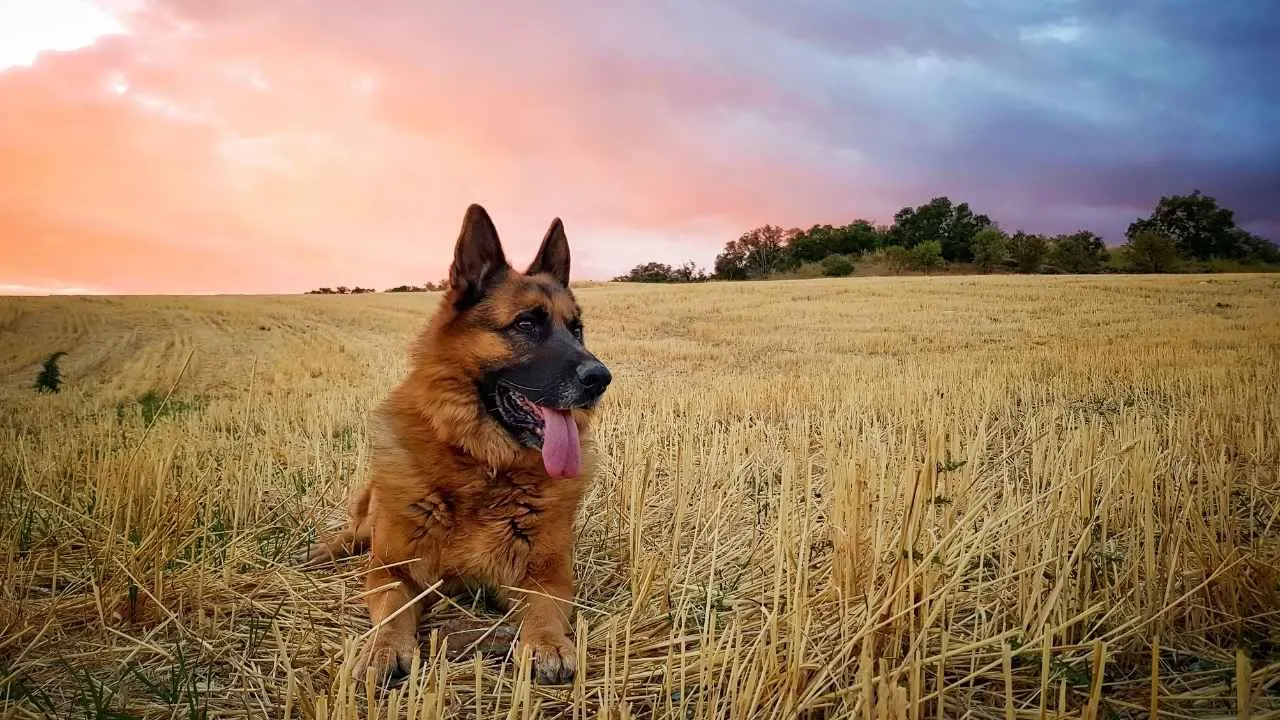
Few breeds embody loyalty and courage like the German Shepherd, a trusted companion for countless veterans. Historically trained for military and police work, this breed is known for its fearless service in war zones and search-and-rescue missions.

What makes German Shepherds invaluable is their sharp intelligence and ability to read emotional cues. Veterans coping with PTSD often find comfort in their intuitive support, as these dogs naturally respond to subtle shifts in mood.
Their temperament blends confidence with calm vigilance. This combination makes them not only protective guardians but also deeply affectionate partners who thrive on trust.
German Shepherds excel in structured training, quickly mastering commands and adapting to complex service tasks. Their focus and discipline allow them to support veterans in daily life with reliability.
For those seeking both protection and unwavering companionship, the German Shepherd remains one of the most loyal breeds trusted by veterans worldwide.
Owner insights
Detects distress through subtle body language.
Trained in Germany for military service, quick to act.
Steady eye contact calms owners in high-pressure situations.
2. Labrador Retriever
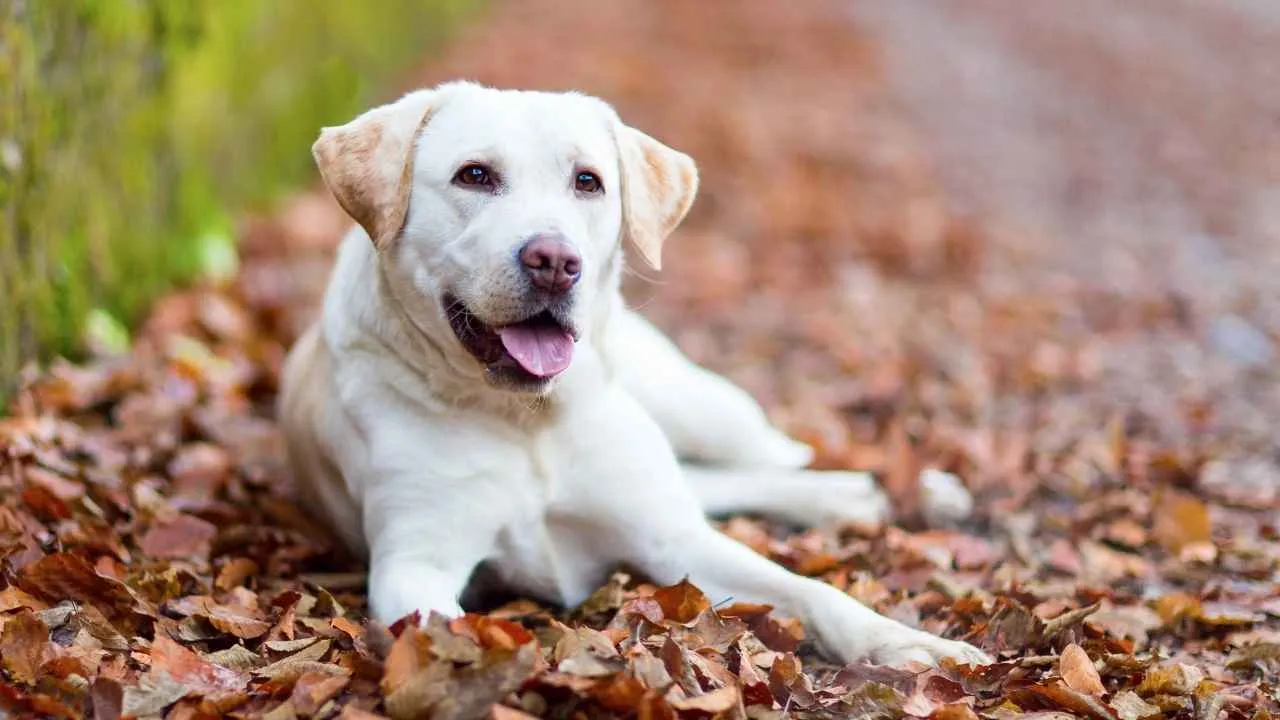
Labrador Retrievers have long been cherished for their warm temperament and remarkable trainability. Originally bred as working dogs for fishermen, today these energetic dogs serve as therapy companions and service animals for veterans across the globe.
WebMD claims that their emotional intelligence is extraordinary, often sensing stress or anxiety before it escalates. This makes them natural partners for veterans managing trauma, offering calm reassurance when it’s needed most.
Gentle yet strong, Labradors adapt seamlessly to family life while also excelling in structured roles like guide work or psychiatric support. Their patient demeanor helps veterans rebuild routines and stability.
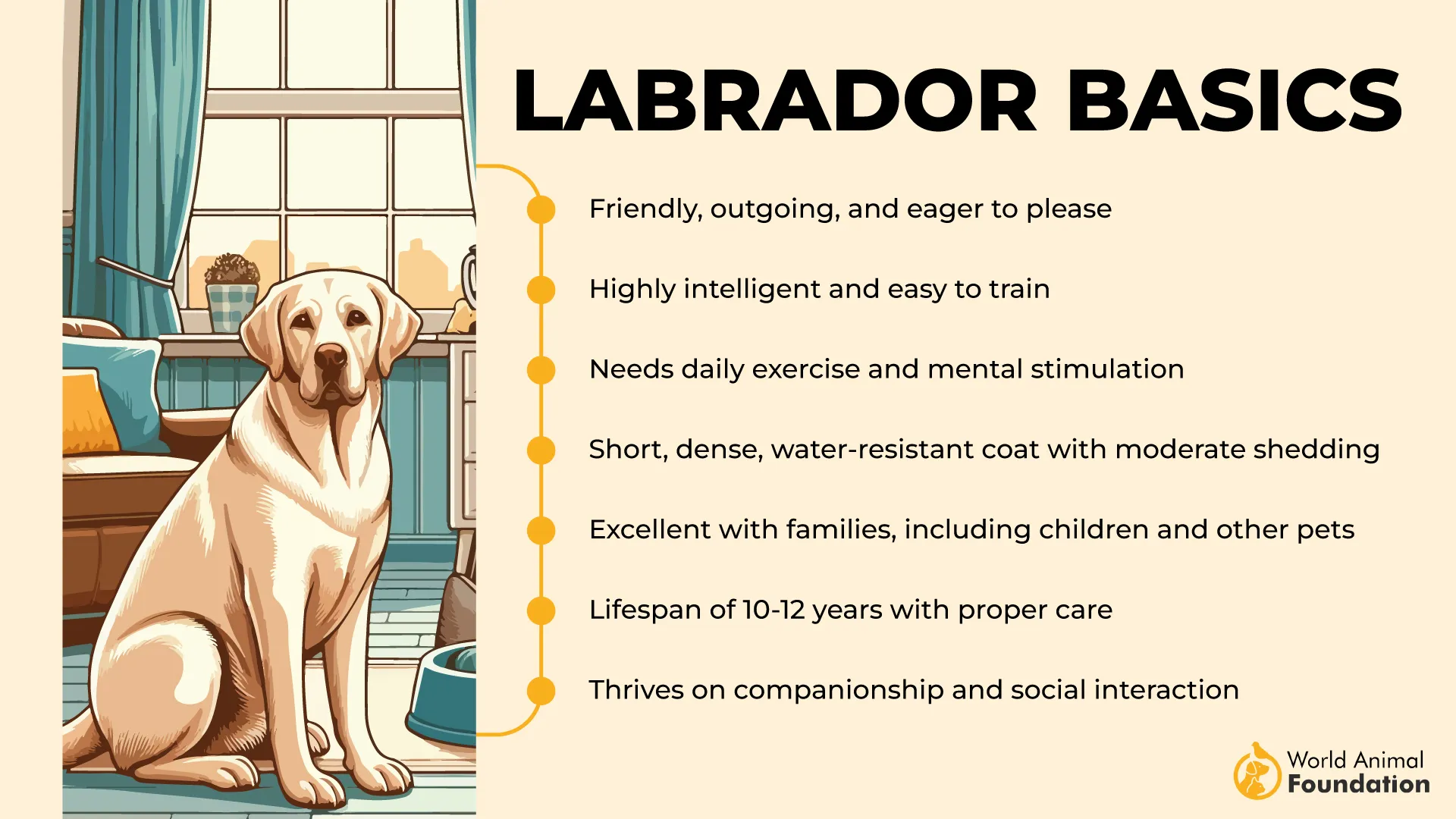
With high energy levels, they encourage activity through play, exercise, and outdoor adventures. This healthy outlet often aids veterans in regaining confidence and reducing isolation.
The Labrador Retriever’s mix of loyalty, empathy, and joyful spirit continues to make it a top choice for veterans seeking both dependable service and heartfelt companionship.
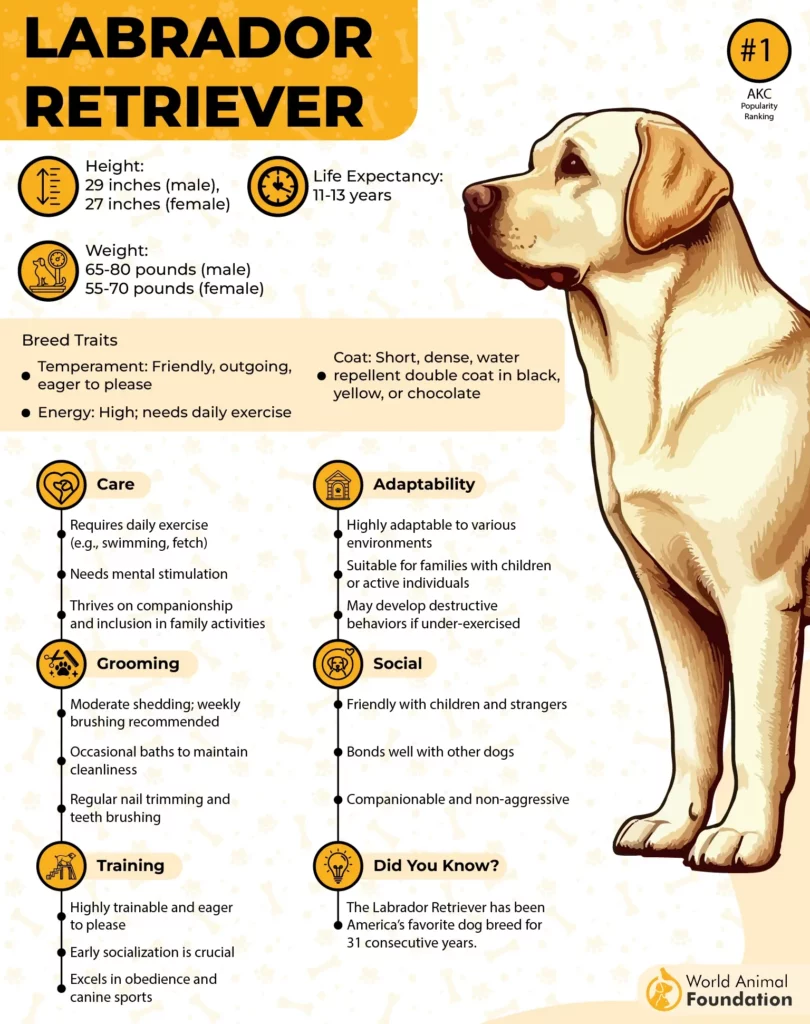
Owner insights
Uses a great sense of smell to detect stress hormones.
Nudge toys or a ball to interrupt anxiety.
Gives physical comfort with gentle pressure, refined through proper training.
3. Golden Retriever
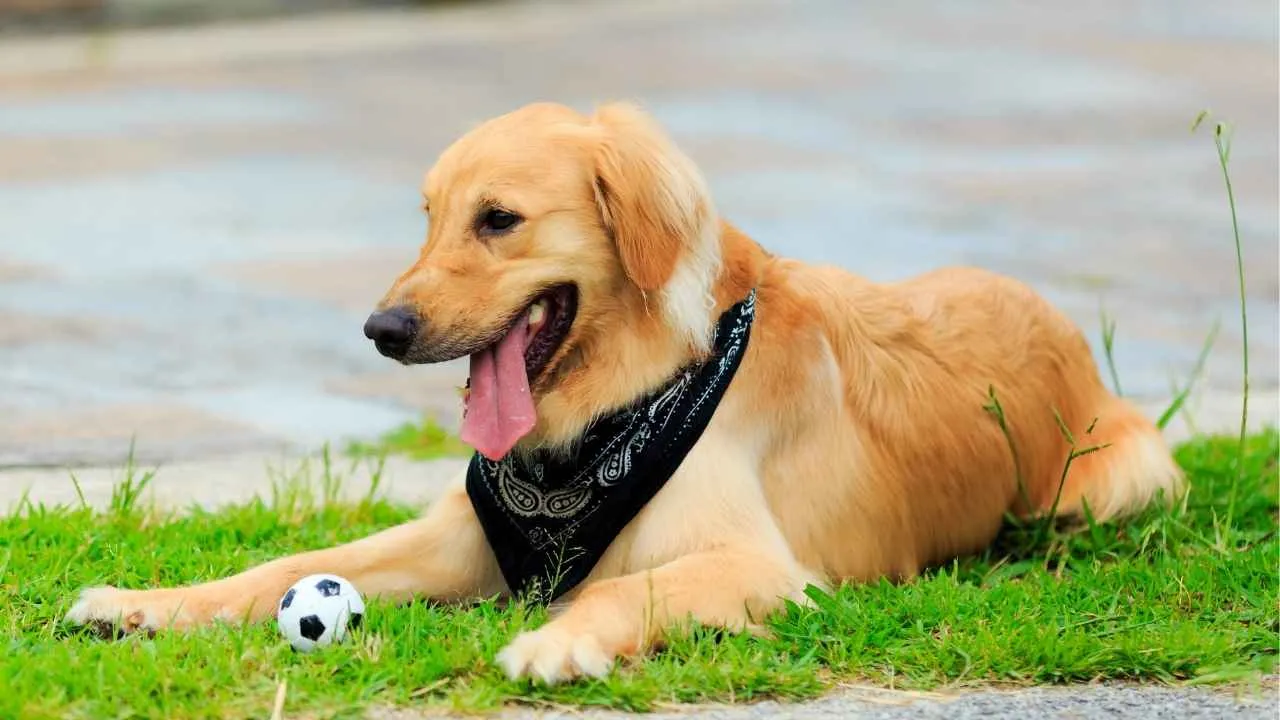
Golden Retrievers are renowned for their devotion, sensitivity, and steadfast companionship. Their history in therapy and service work highlights just how much comfort they bring to veterans facing emotional challenges.

With a natural ability to connect, Goldens often form deep bonds that ease the burden of loneliness. They are especially effective as psychiatric service dogs, helping veterans navigate anxiety and PTSD with gentle reassurance.
AKC mentions that their temperament is consistently calm and affectionate. Unlike more assertive breeds, they offer a soothing presence that creates a sense of safety and emotional balance.
Highly trainable and eager to please, Golden Retrievers excel in structured service tasks while still shining as affectionate family companions. Their adaptability is unmatched.
For veterans seeking a loyal partner who radiates warmth and unconditional love, the Golden Retriever stands as one of the most trusted and beloved dog breeds for devoted companionship.
Owner insights
Recognizes distress from tone of voice.
Performs complex tasks like fetching medication.
Calms kids and adults alike with perfect patience.
4. Boxer
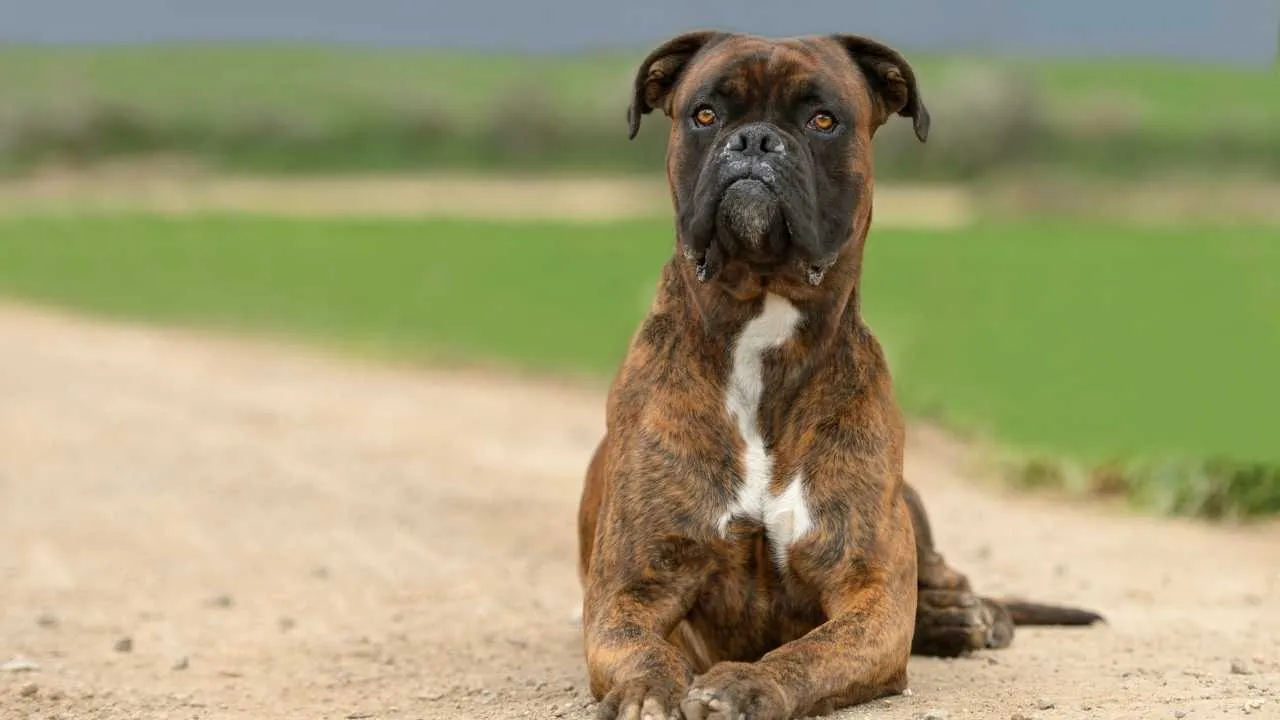
Boxers are often described as spirited guardians with hearts full of devotion. Once used as messenger dogs in World Wars I and II, their bravery and quick thinking made them valuable allies on the battlefield, notes Britannica.
Today, that same courage translates into a loyal presence for veterans navigating life after service. Their protective instincts are balanced by an almost clownish playfulness, which helps break tension and bring joy to daily routines.
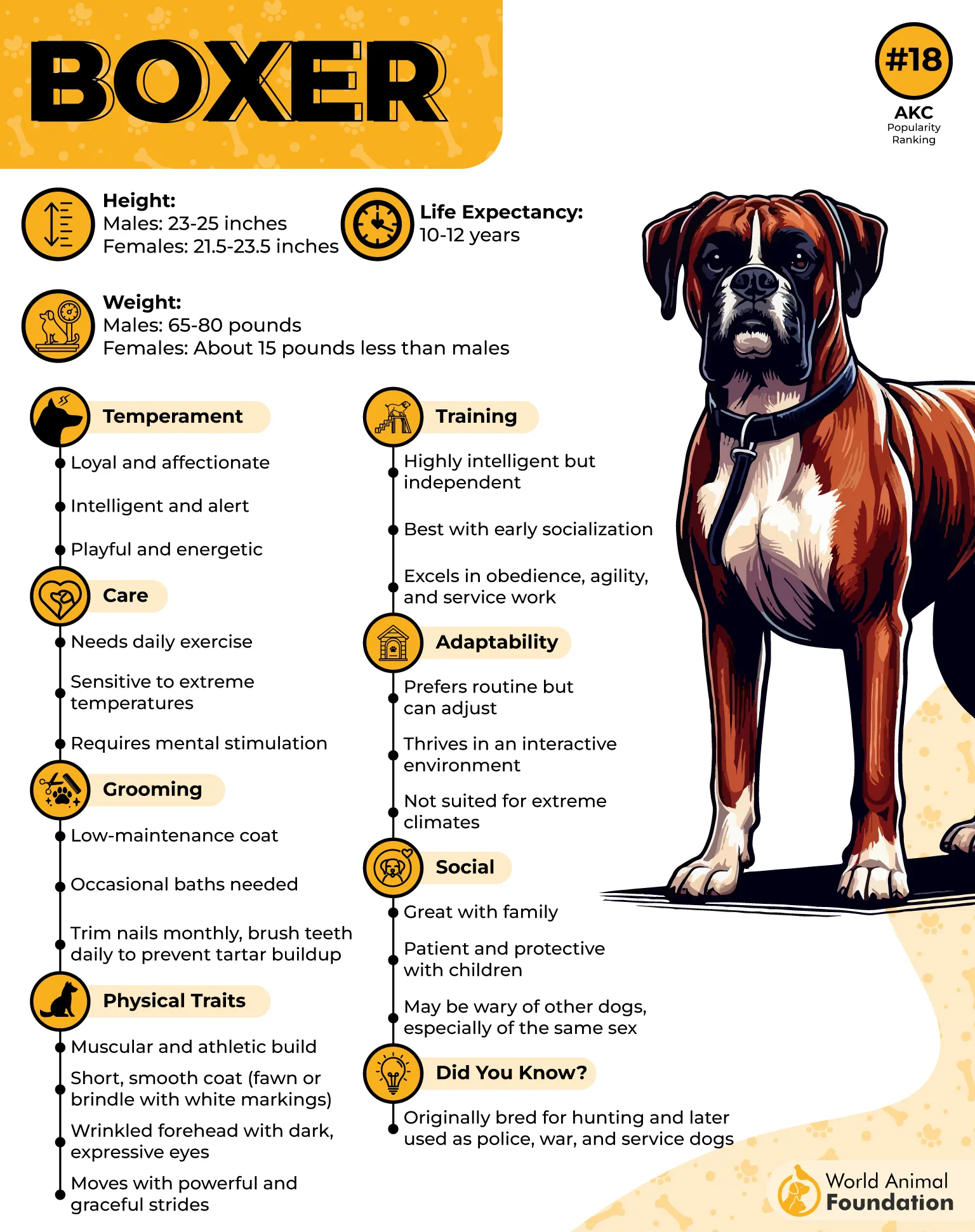
Boxers are deeply attuned to the emotions of their handlers. They thrive in environments where connection and purpose guide their behavior, making them ideal for veterans seeking both comfort and companionship.
With high energy levels, they keep veterans active and engaged, offering healthy outlets for stress and anxiety. A brisk walk or play session can become a powerful therapeutic ritual.
The Boxer’s blend of courage, loyalty, and affectionate nature makes it a trusted breed for veterans in need of a steadfast, uplifting partner.
Owner insights
Uses its muscular body to shield anxious owners.
Offers playful closeness when sensing unease.
Acts as guard dogs without intimidating aggression.
5. Bernese Mountain Dog
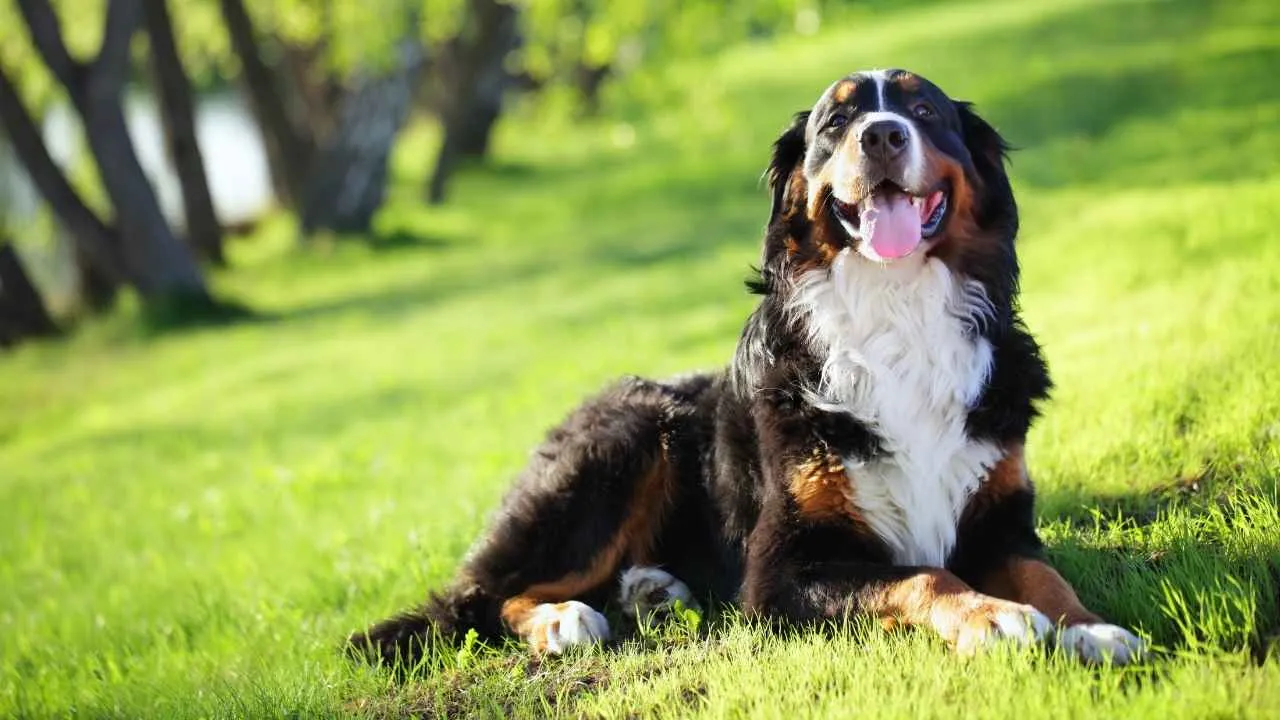
Gentle giants with a noble heart, Bernese Mountain Dogs have long been admired for their unwavering loyalty. Historically bred to work alongside Swiss farmers, their calm strength now translates beautifully into emotional support roles for veterans.
Their temperament is a unique mix of patience and devotion. Veterans dealing with unresolved trauma often find peace in the Bernese’s grounding presence, as these dogs are naturally attuned to emotional shifts.
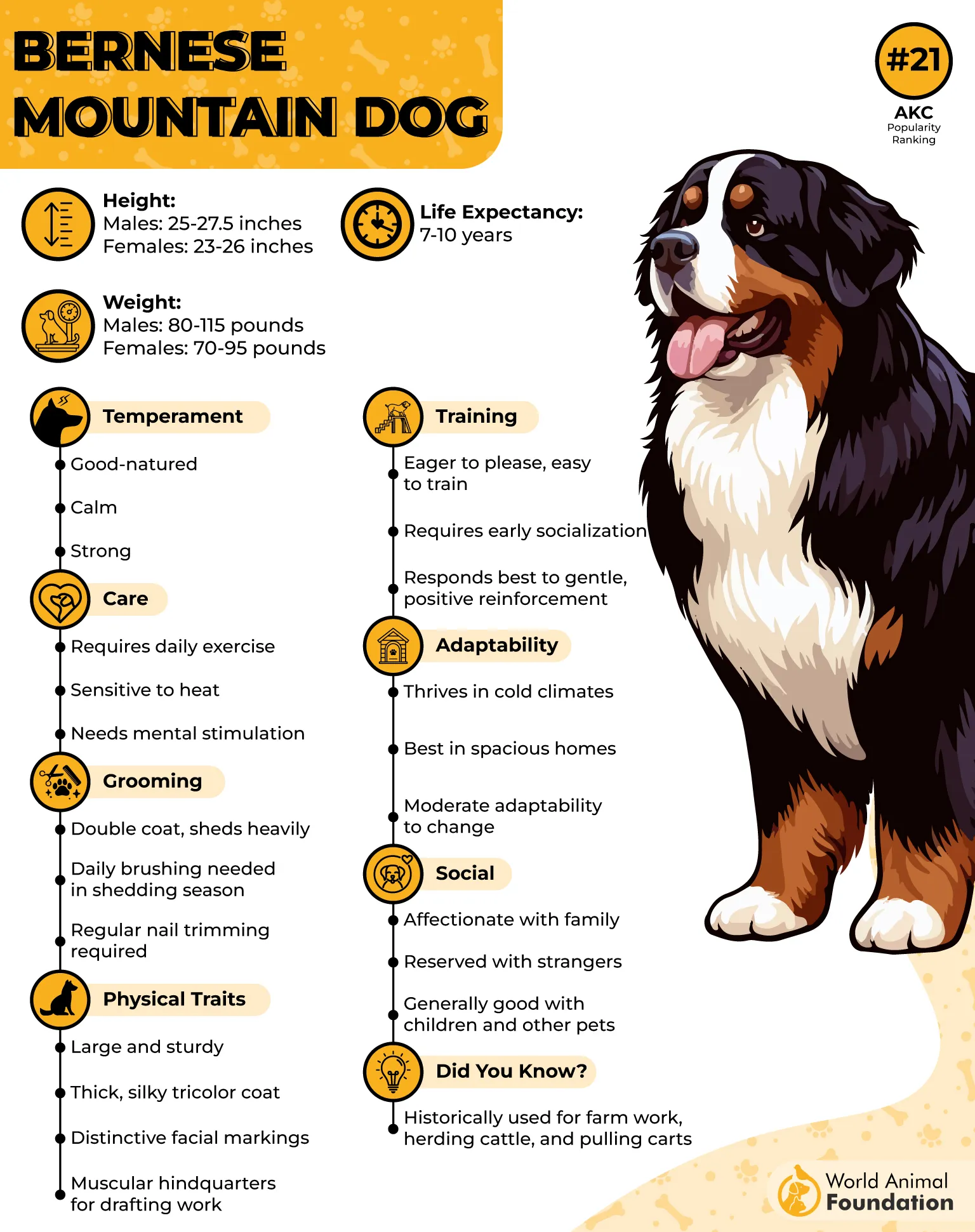
Bernese Mountain Dogs are highly adaptable in therapy and companionship settings. Their affectionate nature allows them to provide comfort without overwhelming their handler.
Though large in stature, they move with surprising gentleness, making them well-suited for veterans seeking both security and calm. Their reliability fosters trust and stability, two essentials for emotional healing.
For veterans in search of a loyal, affectionate breed with a calming influence, the Bernese Mountain Dog offers both strength and serenity in one remarkable companion.
Owner insights
Reads distress from restless movement.
Long hair makes grooming a calming ritual.
Excellent companions by staying steady and close.
6. Great Dane
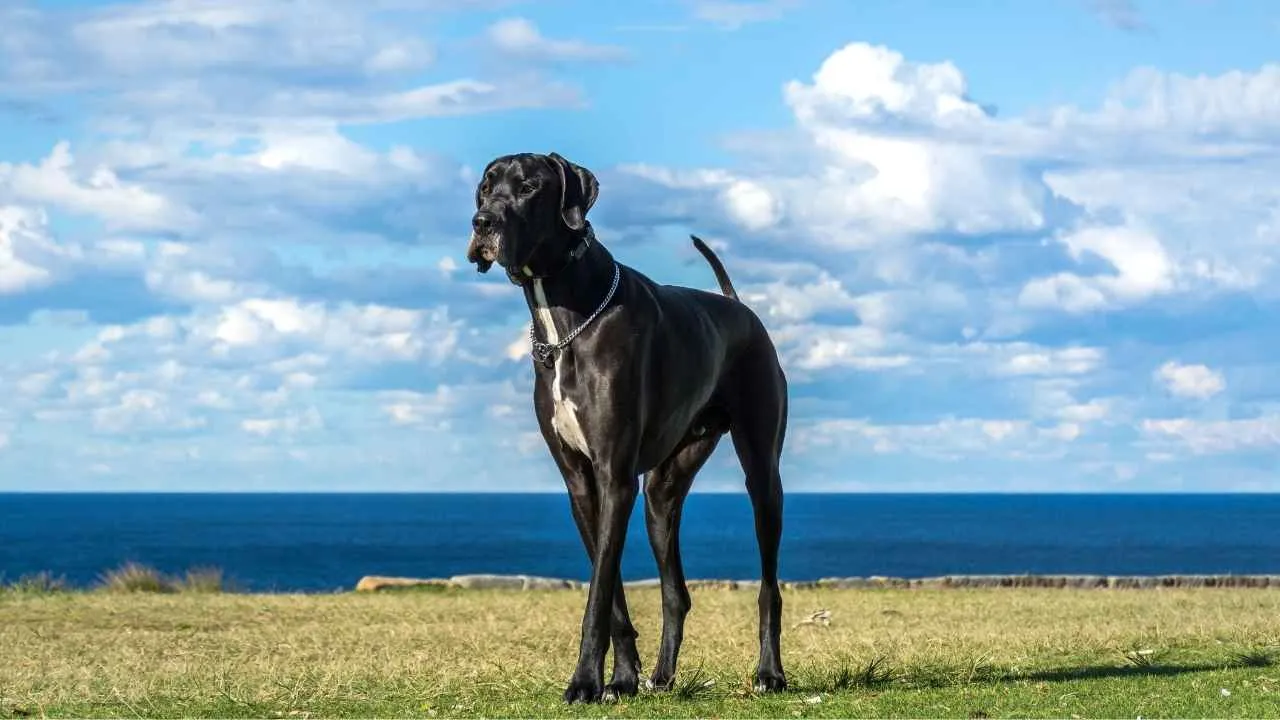
Often called the “gentle giant,” the Great Dane is a breed of both impressive stature and tender loyalty. Historically seen as guardians, they now excel as emotional anchors for veterans in need of stability and reassurance.
Despite their size, Great Danes are remarkably sensitive. They pick up on subtle emotional cues, providing a calming presence that can be especially beneficial for veterans managing PTSD or anxiety.
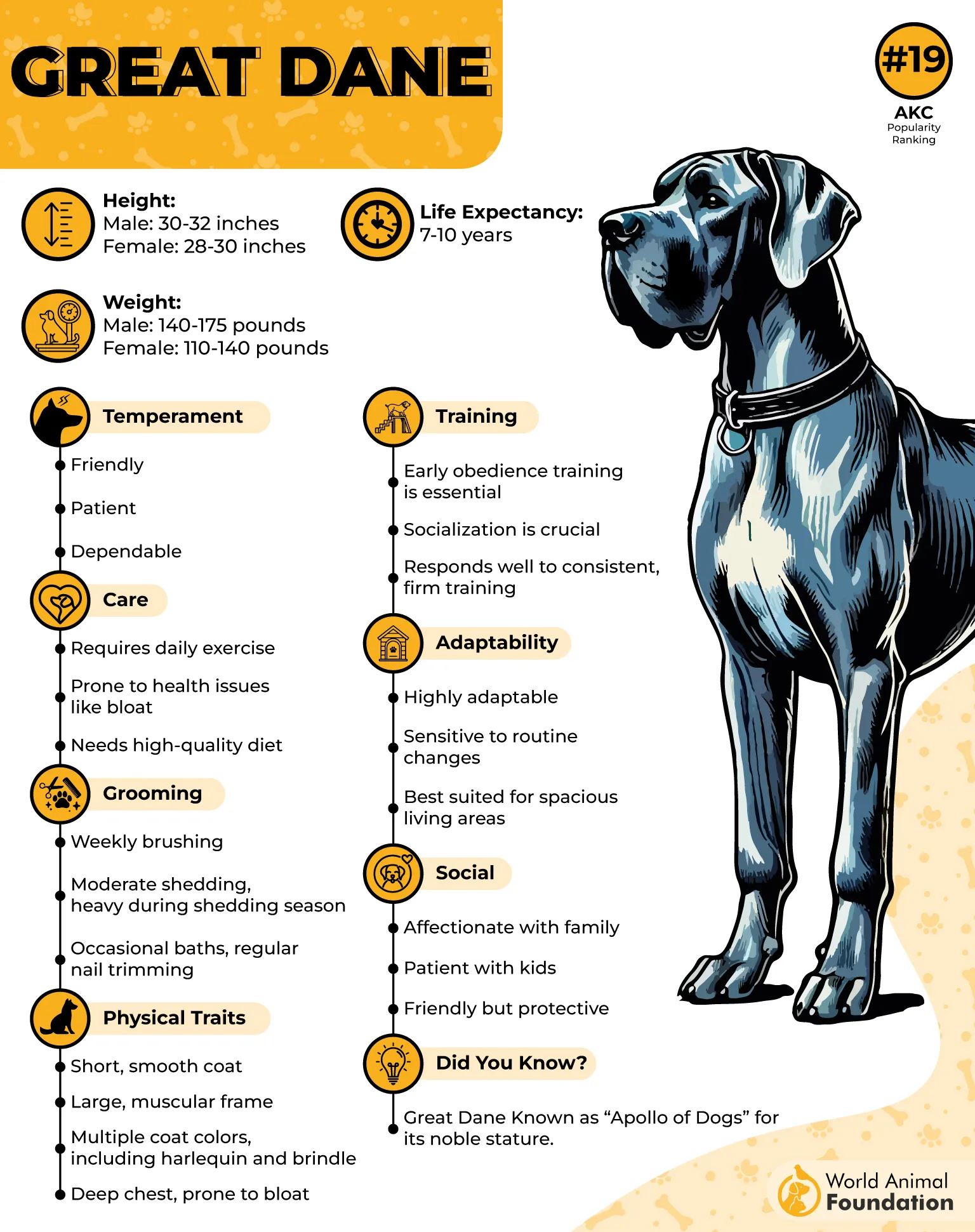
Their temperament is affectionate and steady. These dogs are protective without aggression, offering a sense of safety while remaining endlessly gentle.
Great Danes adapt well to structured routines and thrive on human connection. Their trainability and loyalty make them dependable partners in therapy and companionship roles.
For veterans seeking both emotional security and devoted companionship, the Great Dane stands tall — literally and figuratively — as one of the most trusted breeds.
Owner insights
Detects distress from changes in breathing.
Despite its intimidating size, it offers wonderful calm.
Quickly learn routines to perform specific tasks.
7. Border Collie
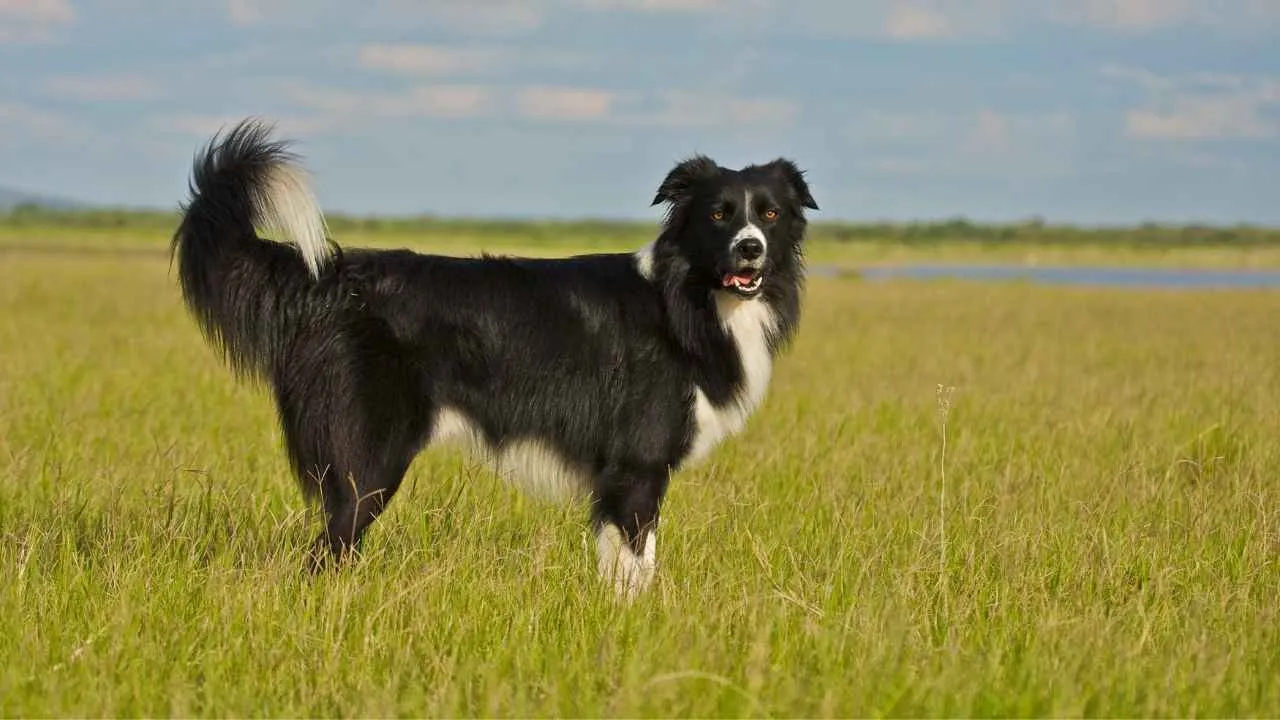
Border Collies are often celebrated as the most intelligent of all dog breeds. Originally bred for herding, their sharp instincts and quick decision-making are now powerful assets for veterans needing both mental engagement and emotional support.
This highly intelligent breed thrives on connection, reading subtle human signals with uncanny precision. For veterans with trauma, Border Collies often anticipate needs before they’re voiced, creating a bond built on trust and reliability.
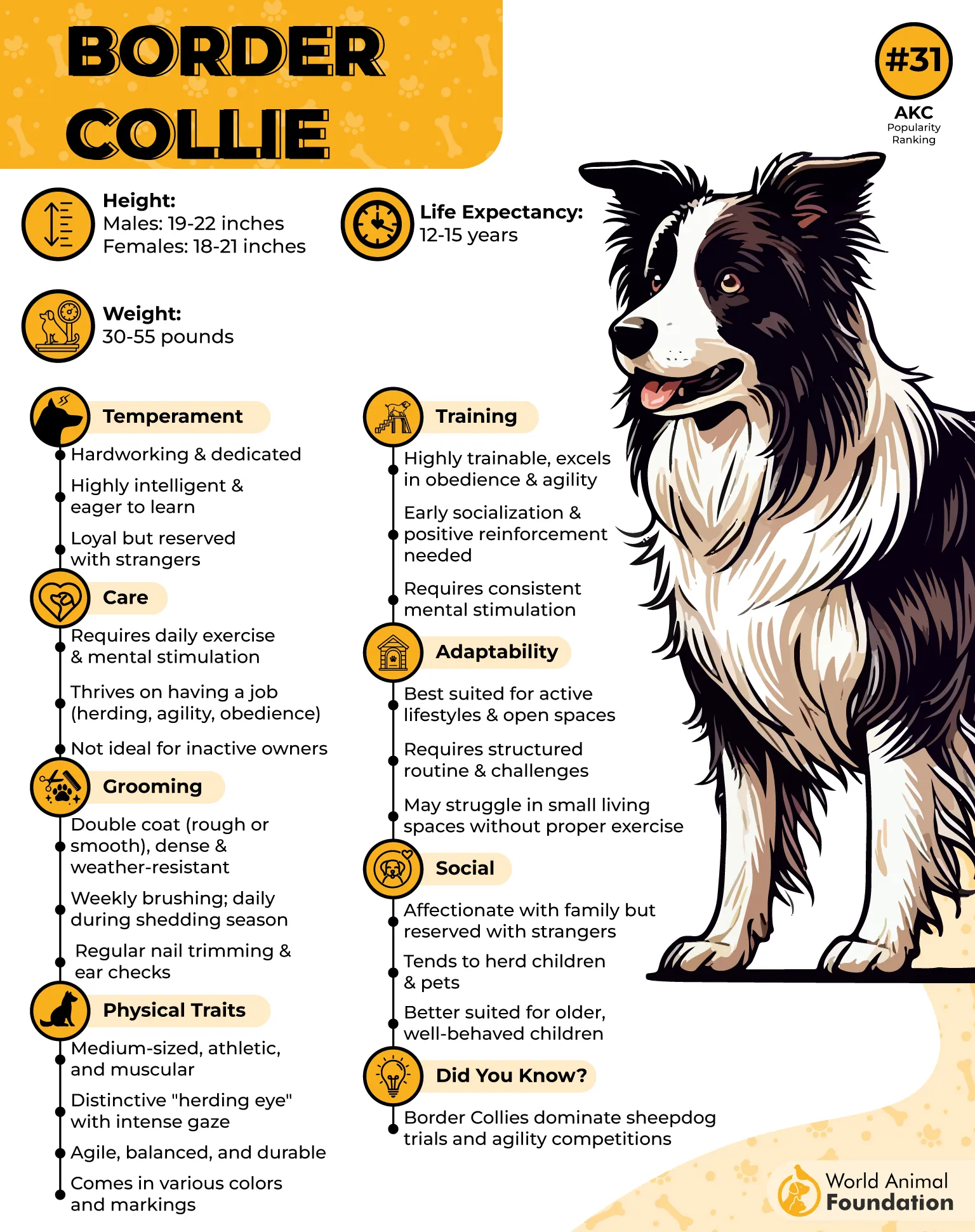
Their temperament blends energy with empathy. While they love to stay active, they also know when to shift into calm companionship, providing balance for veterans’ emotional landscapes.
Highly trainable, they excel in structured tasks and therapy roles. Their eagerness to work and learn helps veterans stay engaged in healthy routines.
For veterans who value both sharp intelligence and unwavering loyalty, the Border Collie is a devoted companion, offering healing through both activity and deep emotional connection.
Owner insights
As herding dogs, they sense unease in movement.
Use agility to redirect or nudge owners to calm.
Show wonder-like focus, giving reassurance instantly.
FAQs
1. Are loyal breeds better suited as service dogs?
Yes, loyal breeds are often the best dog breeds for service work because they thrive on connection and consistency. Their ability to stay obedient during obedience training and perform specific tasks makes them excellent partners for veterans. According to the American Kennel Club, loyalty combined with intelligence is a gold standard for service dogs.
2. Are loyal breeds protective without being aggressive?
Loyal breeds can protect without unnecessary aggression, offering security while staying friendly and understanding. Many have a keen sense of danger yet remain obedient, responding calmly under pressure. Beneath their fearless nature lies the ability to provide physical comfort rather than intimidation.
3. What qualities make a dog loyal to veterans?
Loyalty comes from a mix of temperament, intelligence, and bond-building over time. Smart breeds with an active lifestyle and proven ability to track or carry out military work often form deep attachments. This unwavering dedication makes them excellent partners, offering both protection and companionship.
Conclusion
Loyalty, courage, and compassion define the best dog breeds trusted by veterans. From therapy dogs offering physical comfort to military dog breeds proven in World War II, their unwavering dedication is unmatched.
Certain dog breeds like Labs, German Shepherds, and Golden Retrievers are well known, but other dogs, such as the Belgian Malinois, Dutch Shepherd, and Doberman Pinscher, also bring a keen sense, fearless nature, and incredible focus to specific tasks.
Finding the right dog means choosing an excellent partner for life. Ready to meet your loyal four-legged friend? Start your journey today through trusted breeders or rescue dogs.


